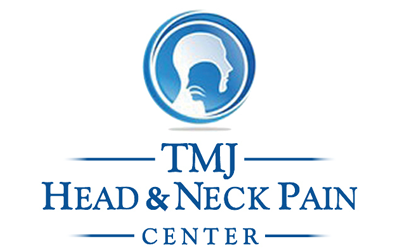- Schedule an Appointment Today
- (310) 231-5100
- drjelisha@gmail.com
Symptoms of TMJ Pain
TMJ Sleep Apnea Mouth Piece
December 20, 2019Symptoms of TMJ Pain
TMJ is a disorder that affects the temporomandibular joint, which connects the jaw to the skull and hinges so that you can move your mouth to eat and communicate. While TMJ is often characterized by headaches and jaw pain, you can experience TMJ eye symptoms, along with neck and ears. Doctors don’t know exactly what causes the pain and discomfort associated with TMJ, though it often develops after an injury or because of nighttime jaw clenching, stress, or arthritis. TMJ can affect anyone, though it’s more common among women and those aged 20 to 40. If you’ve been diagnosed with TMJ, it’s important to know these seven things about the symptoms of this disorder.
Symptoms Can Be Temporary or Permanent
TMJ may arise without warning and last just a few weeks or months, affecting just one side of the face or both sides of the joint. In some cases, though, symptoms persist for many years or even permanently. Medical attention can help alleviate the discomfort of this condition and prevent complications such as damage to the teeth and jawbone.
Widespread Pain May Occur
If you have TMJ, your entire face and neck area may feel tender. Pain from this condition can affect the lower jaw, cheekbones, neck, and shoulders. Sometimes, you may also have TMJ eye symptoms.
Function Can Be Affected
Those with TMJ may have difficulty opening their mouths wide and/or hear a clicking or popping sound when they chew, yawn, or otherwise move the jaw. In some cases, jaws can even get stuck in an open or closed position, which is often painful.
TMJ Can Cause Ear-Related Complications
In addition to earaches, those with TMJ can experience difficulty hearing and/or develop tinnitus, a ringing sensation in the ears. Dizziness can also result from this condition.
Home Remedies May Help
We often recommend that patients take steps to alleviate TMJ symptoms at home. This can include over-the-counter pain medications, hot or cold packs, relaxation techniques, and maintaining proper posture.
Jaw Exercises Can Relieve Pain
Specific exercises can reduce TMJ symptoms by relaxing the jaw, strengthening the joint and the supporting muscles, and increasing joint mobility. For example, rest your tongue just behind your front teeth and open your mouth slightly to relax your jaw muscles if you often notice that you’re clenching your jaw when at rest. Seek medical advice to make sure that you’re doing exercises correctly, especially if you’re still having discomfort.
Treatment Is Available
For those with more severe symptoms that do not respond to conservative measures, treatment can help resolve joint issues. This can include anti-anxiety medications, muscle relaxers, splinting, night guards, and dental work to correct bite issues that may be causing TMJ. Severe problems with the jawbone can be surgically corrected.
TMJ Specialist Los Angeles
Dr. Jacob Elisha has over 30 years of experience in the field of dentistry, periodontics, and cutting-edge restorative techniques in Los Angeles, CA. Dr. Jacob Elisha is an authority in on TMJ Disorders. He has successfully treated patients with TMJ disorders in Los Angeles in the past and looks forward to the future.
TMJ Disorders. An award-winning oral maxillofacial surgeon and Los Angeles TMJ specialist, Dr. Jacob Elisha is known for providing among the most effective TMJ treatment Beverly Hills has to offer—improving jaw function and delivering permanent relief from chronic pain.

